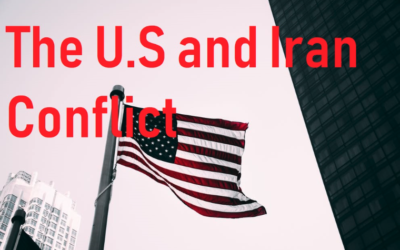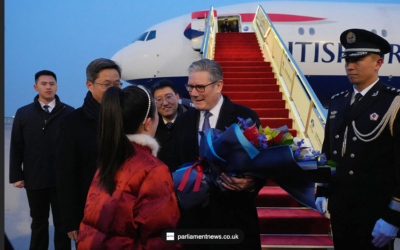With a little background history on the U.S Global AIDS efforts shows that since the early 2000s, the U.S has been a global leader in the funding and supporting of the HIV/AIDS response though PEPFAR and USAID. And these programs have saved millions of lives other countries particularly in the Sub-Saharan Africa, by supporting antiretroviral therapy (ART), testing, and prevention services. Most of the funding was public, and implementation relied on NGOs, community-based organization, and local governments.
Recent news shows that the post-USAID funding is not gone but it signals a reduced or reshape role to reduce direct aid to government and some NGOs, whiles encouraging private sectors to get involve, including pharmaceutical companies, insurance firms and even the health tech startups to help promote market-based models like user fees, insurance schemes, and public partnerships.

With the administration of President Donald Trump implantation on several notable charges to the U.S foreign aid policy, including shifts of financing and operations at USAID. There was a deep funding cuts proposed, and a restructuring effort with a clear ideological shift that heavily influenced how USAID operated during his tenure in (2017-2021). With the dramatic reductions to USAID’s budget in President Donald Trump annual budgets request to the congress was a 32% cut to the state department and USAID combined, this was made due to the 2018 budget proposal. Also, the Trump administration aimed to adopt an “America First” approach, reducing foreign aid under the argument that the U.S should prioritize domestic spending. And the congress pushed back and restored much of the funding, nut the threat and rhetoric had a lasting effect on USAID operation and moral.
In 2019, Trump ordered the Office of Management and Budgeting (OMB) to review and potentially freeze $4.3 billion in already approved foreign aid funds-including USAID allocation. With Trump’s OMB intentions, led by Mick Mulvaney, aimed to “rescind” theses funds-canceling them even after congressional approval. This cause a significant result after bipartisan backlash, especially from senate republicans, the funds were eventually released but it signaled a hostile stance towards USAID’s global role creating uncertainty for implementing partners and foreign governments relying on USAID programs.
With the U.S withdrawal support from key global institution like WHO and the UN agencies, weakening multilateral cooperation. Through PEPFER reminded funded, health program becomes politicized, favoring conservative values and private or faith-based partners over traditional public health organization

Many developing countries, especially in Africa, found themselves at a crossroads. Aid that was once predictable and focused on health and development goals now came with strings attached, demanding political allegiance. Countries were pressured to align with U.S anti-abortion, anti-LGBTQ+ and pro-Israel stance to continue receiving certain types of aid, for example, some Africa nations were warned or indirectly threatened with funding cuts if they don’t support the U.S position at the UN or other forums
So, this has made Trump’s foreign policy often follow a business-like, quid pro quo logic, stating, “What do we get in return?”. Also, this is similar to the tariff wars using economic tools (aid or trade) to compel political obedience or loyalty. This implications in fact have made many African government have begun diversifying their diplomatic and economic alliance, partly because U.S aid and partnership under Trump become less predictable or tied to ideological strings. Causing a health outcomes which may be compromised if funding becomes conditions or unrelated political stance, at the same time sovereignty is also threatened if aid is used to reshape domestic policies such as productive right, whiles it undermines trust in global partnership and risk pushing nations towards other powers like China or Russia, who offer fewer political strings.
If we are to compare the USAID to the tariff war between U.S and China, the comparison way to approach is to use the tariff war (U.S vs China) economic penalties or incentives, trade rivals, strategic dominance, trade balance, supply chains, global trade and overt & formal policy. Whiles the Foreign Aid policy (USAID) tackles the development assistance and funding, developing nations especially Africa, meeting political alignment, ideological influence. Impact on the health system, human tight, public trust and often subtle, unofficial, behind diplomatic scenes. If future administration (Republican or otherwise) continues this whole trend, it is entirely possible that the head aid will become a bargaining chip, whiles countries will be forced to choose between health security and political allegiance and also cause a global weakened the fight against HIV/AIDS on non-health-related political agendas.
In concluding there is growing evidence that under Trump and potentially similar future leadership, the U.S could increasingly us USAID funding as a soft power weapon, similar to how tariff were used in trade was. And this can make developing nations, especially in Africa, vulnerable to political manipulatino0 at the cost health and human development.
Stay Informed, Stay Ahead
Curious about what’s really shaping the world economy—and how it affects you? Follow us on Facebook and LinkedIn for quick, clear insights into global trends, key economic shifts, and real-world analysis. Whether you’re running a business, studying economics, or just trying to stay informed, our content breaks it all down in a way that’s easy to follow and worth your time. For full stories, sharp visuals, and deeper takes, visit our LinkedIn and explore more.



